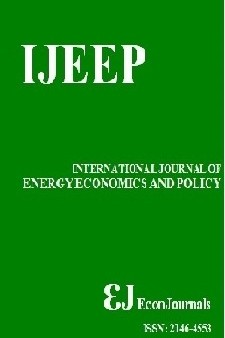Using Economic Incentives to Reduce Electricity Consumption: A field Experiment in Matsuyama, Japan
Using Economic Incentives to Reduce Electricity Consumption: A field Experiment in Matsuyama, Japan
- Başlangıç: 2011
- Yayıncı: İlhan ÖZTÜRK
Energy Consumption and Growth in Romania: Evidence from a Panel Error Correction Model
Nicholas APERGİS, Dan DANULETİU
Optimal Willingness to Supply Wholesale Electricity Under Asymmetric Linearized Marginal Costs
A Dynamic Model for Road Gasoline and Diesel Consumption: An Application for Spanish Regions
Rosa Marina González MARRERO, Roza M. LORENZO-ALEGRÍA, Gustavo A. MARRERO
The Role of Speculation in the Determination of Energy Prices
Energy Sources Management and Future Automotive Technologies: Environmental Impact
Zohreh SALİMİAN, Marjan KORDBACHEH, Mehdi Sadeghi SHAHDANİ, Vahab MOKARİZADEH
Bukhari M. S. SİLLAH, Hamad M.h. ALSHEİKH
Using Economic Incentives to Reduce Electricity Consumption: A field Experiment in Matsuyama, Japan
Kenichi MİZOBUCHİ, Kenji TAKEUCHİ
Technical Efficiency of Thermal Power Generation in India: Post-Restructuring Experience
